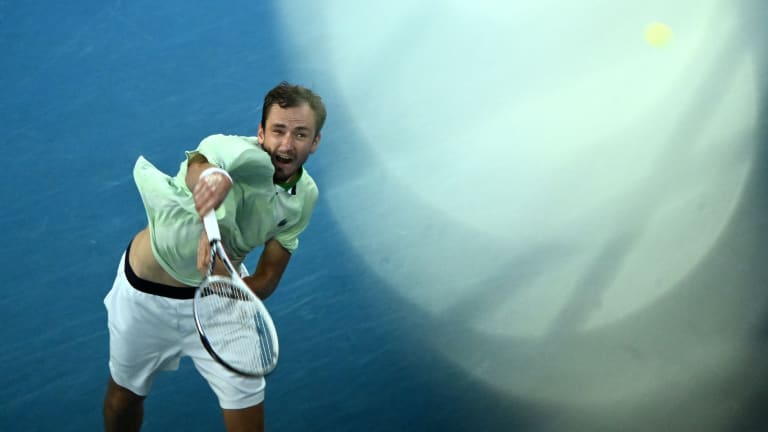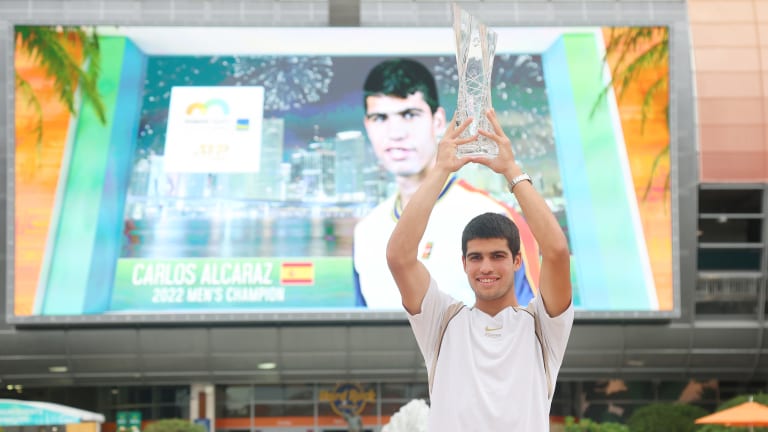2022: 2nd Half Preview
Can Daniil Medvedev or Carlos Alcaraz finish 2022 the way they started it?
By Jul 25, 20222022: 2nd Half Preview
Novak Djokovic, Rafael Nadal and Roger Federer face a period of collective uncertainty in the months ahead
By Jul 28, 20222022: 2nd Half Preview
Can friends Iga Swiatek and Naomi Osaka both be winners—and maybe even rivals—over the rest of 2022?
By Jul 26, 20222022: 2nd Half Preview
Can Elena Rybakina go from Centre Court Cinderella to consistent title threat?
By Jul 22, 2022Australian Open
Mirra Andreeva dons “I would like to thank myself” sweatshirt after Adelaide title
By Jan 17, 2026Australian Open
Novak Djokovic hopes to face Carlos Alcaraz, Jannik Sinner at 2026 Australian Open
By Jan 17, 2026Australian Open
Daria Kasatkina is “giving ‘no worries’ a crack” in first Australian Open as Aussie citizen
By Jan 17, 2026Australian Open
Jessica Pegula aims to expand “Player’s Box podcast,” talks Aryna Sabalenka rivalry at AO
By Jan 17, 2026Australian Open
Venus Williams talks Palm Beach wedding to Andrea Preti before Australian Open return
By Jan 17, 2026Australian Open
Back to Blonde: Amanda Anisimova heads to Australian Open high on confidence
By Jan 17, 2026Can Daniil Medvedev or Carlos Alcaraz finish 2022 the way they started it?
They've each been called the future of men’s tennis in the last 12 months. Where can these two very different stars take the game over the rest of the season, and can either finish with a Grand Slam win?
Published Jul 25, 2022
Advertising
Advertising

No one plays the game quite like Daniil Medvedev, which makes his presence at the top of the rankings all the more compelling.
© Getty Images
Advertising

The last time we saw Carlos Alcaraz on hard courts, he was in the midst of a meteoric—if unsustainable—rise.
© Getty Images